Gardening in Kew: A Comprehensive Guide to Thriving Green Spaces
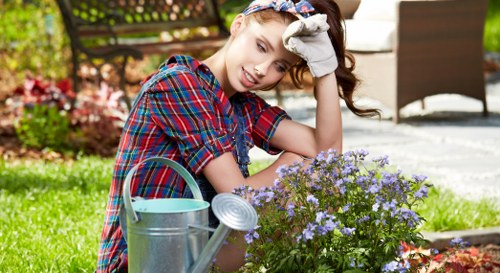
Introduction to Gardening in Kew
Kew, renowned for its exquisite botanical gardens, offers an inspiring environment for both novice and experienced gardeners. The unique climate and rich soil composition make it an ideal location for cultivating a diverse range of plants.
Whether you're looking to create a lush backyard oasis or maintain a vibrant urban garden, understanding the local gardening conditions in Kew is essential for success.
In this guide, we'll explore the best practices, plant selections, and resources available to help you achieve a flourishing garden in Kew.
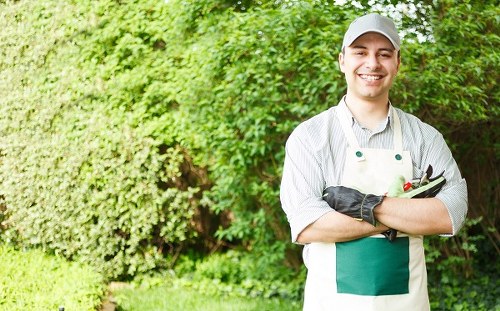
Climate and Soil Conditions in Kew
Understanding the Local Climate
Kew experiences a temperate maritime climate, characterized by mild winters and warm summers. This climate is conducive to growing a wide variety of plants, from hardy perennials to delicate annuals.
The average annual rainfall ensures that gardens receive ample moisture, reducing the need for extensive irrigation systems. However, gardeners should still monitor weather patterns to protect sensitive plants during unexpected storms.
Seasonal changes play a significant role in garden planning. Knowing when to plant and harvest can lead to a more productive and aesthetically pleasing garden.
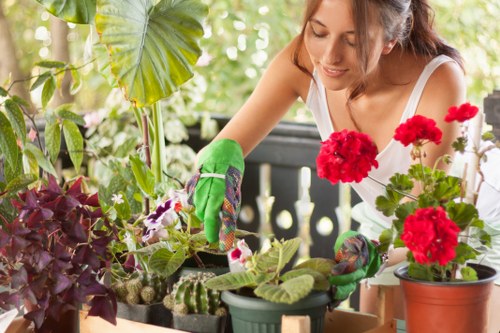
Soil Composition and Preparation
The soil in Kew is predominantly clay-based, offering both challenges and opportunities for gardeners. While clay soils retain moisture effectively, they can sometimes hinder root growth and drainage.
To optimize soil conditions, it's recommended to incorporate organic matter such as compost or well-rotted manure. This not only improves soil structure but also enhances nutrient availability for plants.
Regular soil testing can help determine pH levels and nutrient content, allowing gardeners to make informed amendments for optimal plant health.
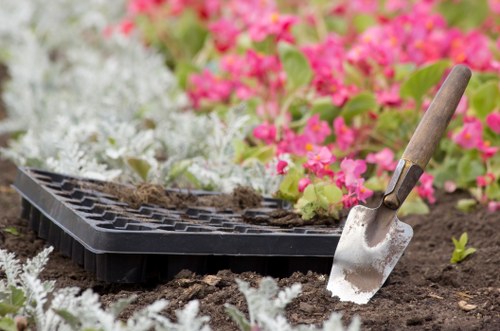
Choosing the Right Plants for Kew Gardens
Perennials and Annuals
Selecting the appropriate mix of perennials and annuals can provide both long-term stability and seasonal variety in your garden. Perennials like lavender, hostas, and roses thrive in Kew's climate, offering lasting beauty year after year.
Annuals such as marigolds, petunias, and geraniums can be rotated to introduce vibrant colors and fill gaps between perennial blooms. This strategy ensures continuous interest and diversity throughout the growing season.
Consider native plant species as well, as they are well-adapted to the local environment and often require less maintenance.
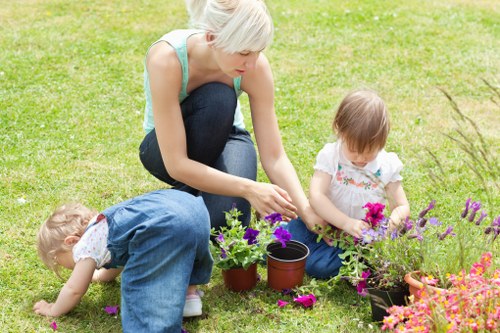
Vegetable and Herb Gardening
For those interested in growing their own produce, Kew's climate is suitable for a wide range of vegetables and herbs. Tomatoes, peppers, cucumbers, and leafy greens can flourish with proper care and sunlight.
Herbs like basil, thyme, rosemary, and mint not only add flavor to culinary dishes but also contribute to the overall health of the garden by attracting beneficial insects.
Implementing crop rotation and companion planting techniques can enhance yield and reduce pest issues, ensuring a sustainable and productive garden.
Garden Design and Layout
Planning Your Garden Space
A well-thought-out garden design maximizes space and creates a harmonious balance between functionality and beauty. Start by assessing the available area, considering factors like sunlight exposure, soil quality, and existing structures.
Divide the garden into different zones, such as planting beds, pathways, seating areas, and water features. This organization facilitates maintenance and creates distinct visual elements.
Incorporate elements like raised beds or vertical gardening to optimize space, especially in smaller gardens or urban settings.

Hardscaping and Features
Integrating hardscaping elements like stone pathways, wooden fences, and pergolas can enhance the garden's aesthetic appeal and provide practical benefits. These structures offer support for climbing plants and create defined spaces for relaxation.
Water features such as fountains, ponds, or birdbaths not only add visual interest but also attract wildlife, contributing to a vibrant ecosystem.
Lighting is another crucial aspect, allowing you to enjoy your garden during evening hours while highlighting key features and ensuring safety along pathways.

Maintenance Tips for a Thriving Garden
Watering Strategies
Consistent watering is vital for plant health, especially during dry spells. Early morning watering helps reduce evaporation and allows plants to absorb moisture effectively.
Using drip irrigation systems or soaker hoses can provide targeted watering, minimizing water waste and ensuring that plants receive adequate hydration.
Mulching around plants helps retain soil moisture, suppress weeds, and regulate soil temperature, contributing to overall garden health.

Pruning and Deadheading
Regular pruning encourages healthy growth and maintains the desired shape and size of plants. Remove dead or diseased branches to prevent the spread of pests and improve air circulation.
Deadheading, the removal of spent flowers, promotes continuous blooming and directs the plant's energy towards new growth.
Proper pruning techniques vary depending on the plant species, so it's important to research the specific requirements of each type in your garden.

Fertilizing and Soil Care
Providing adequate nutrients is essential for vigorous plant growth. Organic fertilizers, such as compost tea or fish emulsion, offer a balanced nutrient supply without the risk of chemical buildup.
Implementing a regular fertilizing schedule tailored to the needs of your plants ensures optimal growth and productivity.
Avoid over-fertilizing, as excess nutrients can lead to plant stress and environmental runoff, negatively impacting the garden's ecosystem.

Pest and Disease Management
Identifying Common Pests
Being proactive in pest management helps maintain a healthy garden. Common pests in Kew include aphids, slugs, and caterpillars, which can damage plants if left unchecked.
Regularly inspect plants for signs of infestation, such as chewed leaves, discoloration, or the presence of insects.
Implementing natural pest control methods, like introducing beneficial insects or using organic repellents, minimizes the need for chemical interventions.

Preventing Plant Diseases
Fungal diseases, such as powdery mildew and blight, can pose significant threats to garden plants. Ensuring proper air circulation and avoiding overhead watering can help prevent these issues.
Promptly removing affected plant parts reduces the spread of disease and supports overall plant health.
Using disease-resistant plant varieties further enhances your garden's resilience against common ailments.

Gardening Resources and Community in Kew
Local Nurseries and Garden Centers
Access to quality plant nurseries and garden centers is crucial for sourcing healthy plants and obtaining gardening supplies. Kew boasts several reputable nurseries that cater to diverse gardening needs.
These nurseries often provide expert advice, workshops, and seasonal tips to help gardeners make informed decisions.
Supporting local businesses not only enhances your gardening experience but also contributes to the community's sustainability.

Gardening Clubs and Workshops
Joining gardening clubs or attending workshops offers opportunities to learn from experienced gardeners, share knowledge, and collaborate on community projects.
These groups often organize events such as plant swaps, garden tours, and educational seminars, fostering a sense of camaraderie among gardening enthusiasts.
Participating in these activities can enhance your gardening skills and provide valuable networking opportunities.

Online Resources and Forums
The digital age has made a wealth of gardening information readily accessible. Online forums, blogs, and social media groups dedicated to Kew gardening offer platforms for exchanging tips, troubleshooting issues, and showcasing garden successes.
Utilizing these resources can keep you updated on the latest gardening trends, techniques, and local events.
Engaging with the online gardening community can also provide inspiration and foster a global perspective on horticultural practices.

Nearby Areas to Kew for Gardening Enthusiasts
Expanding your gardening adventures beyond Kew can introduce you to diverse climates and plant varieties. Here are some of the closest areas to Kew that are ideal for gardening:
- Richmond: Known for its expansive parks and botanical diversity.
- Chiswick: Offers a blend of traditional and contemporary garden designs.
- Teddington: Features beautiful riverside gardens and green spaces.
- Syon Park: Home to stunning formal gardens and historic estates.
- Twickenham: Renowned for its community gardens and horticultural events.
- Mortlake: Offers serene garden spots along the Thames River.
- Hanwell: Known for its rich soil and diverse plant species.
- Brentford: Features urban gardening initiatives and green rooftops.
- Kensington: Hosts some of the most prestigious gardens and green spaces.
- Walton-on-Thames: Offers a mix of private and public gardens with lush landscapes.
Each of these areas provides unique gardening opportunities and resources, making them excellent destinations for enthusiasts looking to expand their gardening horizons.
Conclusion
Gardening in Kew is a rewarding endeavor, offering the chance to cultivate beautiful and thriving green spaces. By understanding the local climate, selecting the right plants, and utilizing available resources, you can create a garden that not only enhances your living space but also contributes to the community's natural beauty.
Embrace the joy of gardening and connect with fellow enthusiasts to continuously grow and improve your horticultural skills.
Contact us today to start your gardening journey in Kew, or book your service now and transform your outdoor space into a lush paradise.
